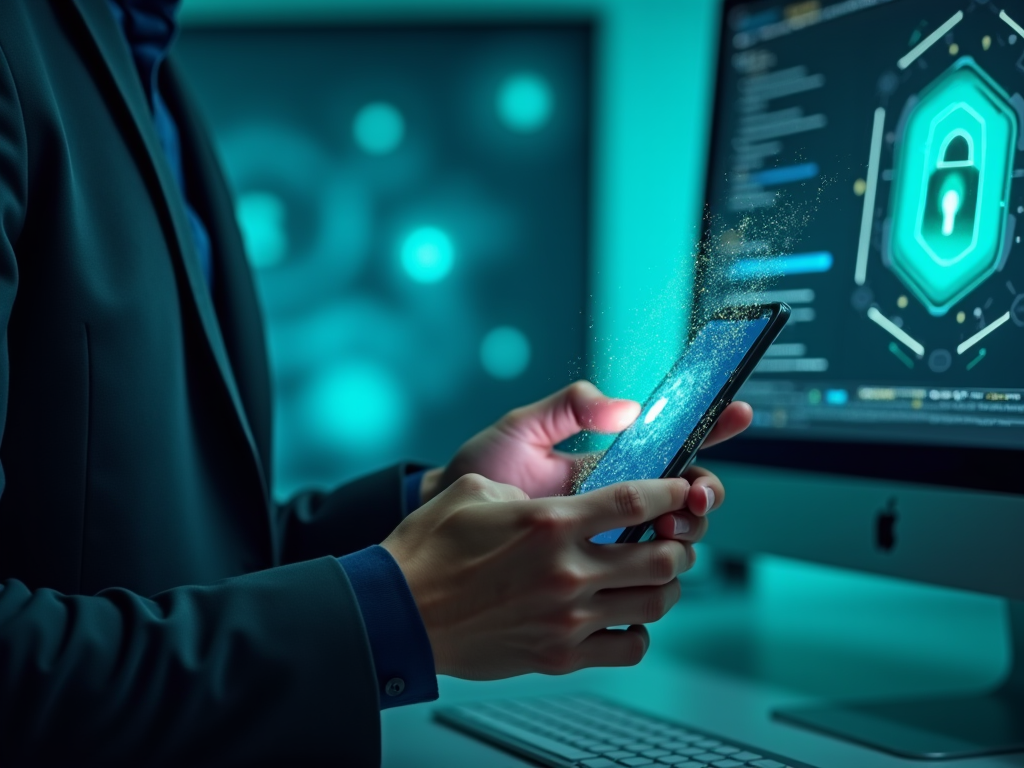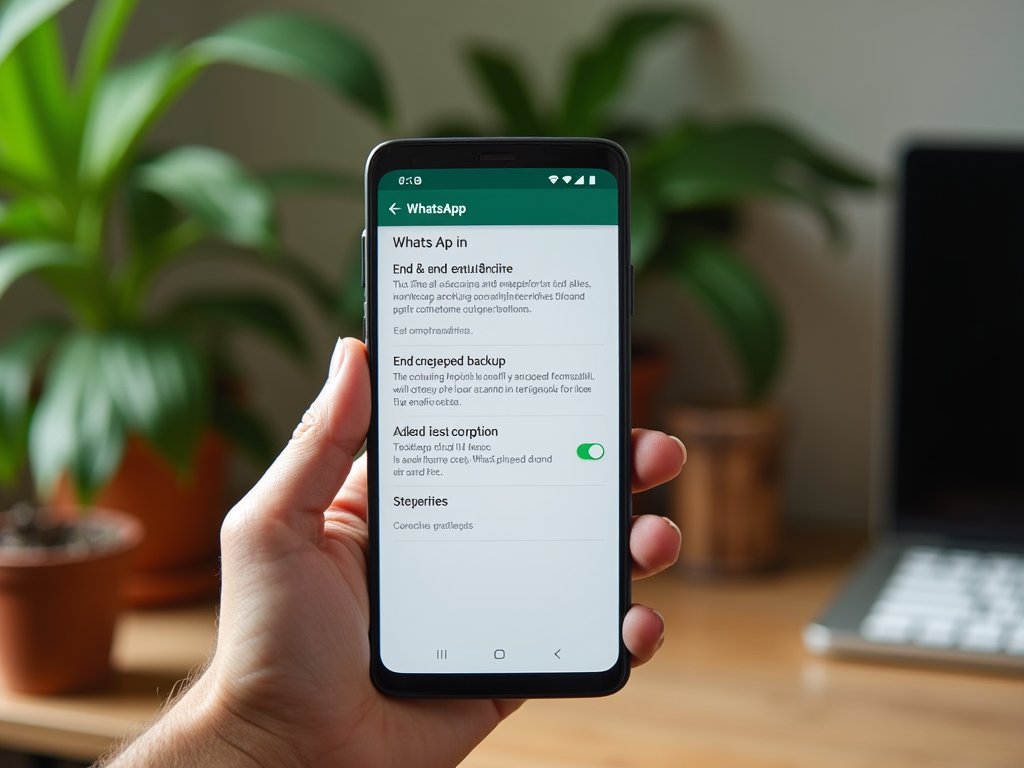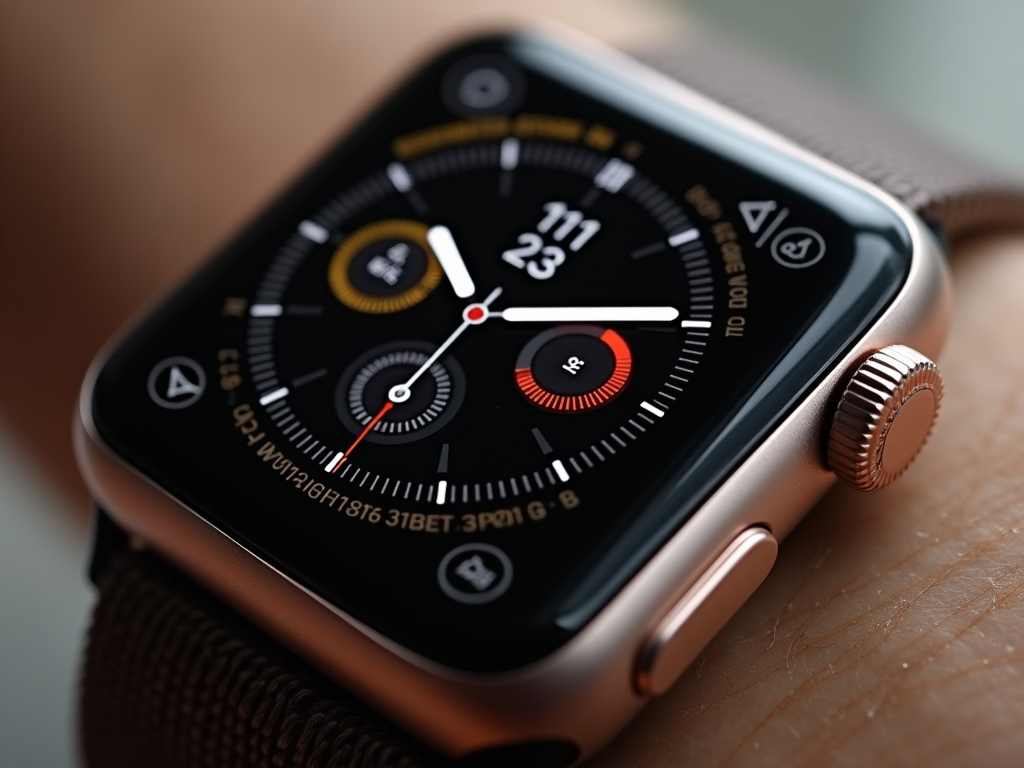WhatsApp, a globally popular messaging platform, has taken significant steps to enhance user privacy with the introduction of end-to-end encryption for backups. But what does this really mean for the everyday user? In essence, this feature ensures that your messages, media, and personal data are encrypted, making it inaccessible to anyone but you. This article explores seven crucial questions to better understand this feature and its implications for users worldwide.
What is End-to-End Encryption in WhatsApp Backups?

End-to-end encryption for WhatsApp backups means that your data is encrypted on your device and can only be decrypted by you. This ensures that not even WhatsApp or any third-party can access your encrypted backups. Previously, while messages were sent with end-to-end encryption, backups stored on cloud services lacked this critical security layer.
WhatsApp’s shift to encrypting backups was necessary due to increasing concerns over data security and unauthorized access in cloud storage. By implementing this feature, WhatsApp offers an added level of security, mirroring the protection users have come to expect from their everyday messaging.
How to Enable End-to-End Encryption for WhatsApp Backups?
Enabling this feature is a straightforward process, making it accessible to all users interested in bolstering their data privacy. You can activate it within the app settings with a few simple steps:
- Open WhatsApp and navigate to Settings.
- Tap on Chats, then proceed to Chat Backup.
- Select End-to-end Encrypted Backup.
- Follow the on-screen instructions to create a password or a 64-digit encryption key.
- Once completed, tap Create to initiate the backup with encryption enabled.
It’s crucial to secure this password or encryption key since losing this information means you cannot access your backups. WhatsApp does not have the ability to recover lost encryption keys.
The rise in cyber threats has made data breaches increasingly common. With traditional cloud backups having vulnerabilities, encrypting backups provides a vital cushion against unauthorized access. In the unfortunate event of a data breach, your encrypted backups remain secure, inaccessible without the specific key even in storage.
This feature is crucial for protecting not just regular conversations but also sensitive information shared through messages. Users conducting business or sharing personal details can rest assured that their data remains confidential both in transit and at rest.
What are the Limitations of Encrypted Backups?
While WhatsApp’s encrypted backup is a great leap forward, it does come with certain limitations. Users should be aware that:
- Your encryption key or password cannot be retrieved if lost. WhatsApp will not be able to assist in recovering it.
- Encrypting and backing up data might take additional time, depending on your device and available resources.
- This feature may not be available for older devices and operating systems, limiting its accessibility.
- Collaborative sharing of encrypted backup data is not possible. Access is limited to the user only.
Users must weigh these limitations against the benefits to make an informed decision about enabling this feature.
Will This Affect the WhatsApp User Experience?
Most users will notice minimal impact on the day-to-day user experience. However, some may experience slight delays during the backup process due to the encryption. Given the importance of data security, this inconvenience is often seen as a minor trade-off for the additional protection.
It is also worth noting that the initial setup and subsequent management of the encryption key both require additional steps. However, the peace of mind that comes with knowing your sensitive information is well-guarded makes the effort worthwhile.
Conclusion
WhatsApp’s move to implement end-to-end encryption for backups marks a significant step in securing user data against unauthorized access. By answering these key questions, users are better positioned to understand the benefits and limitations of this vital feature. As cyber threats continue to evolve, groundbreaking security measures like these exemplify WhatsApp’s commitment to privacy. Enabling encrypted backups is a wise choice for anyone looking to maintain their digital privacy.
Frequently Asked Questions
- Can I turn off encrypted backups after enabling them? Yes, users can disable encrypted backups by navigating to the same settings and turning off end-to-end encryption for backups.
- What happens if I forget my encryption password? If you forget your password or lose your encryption key, you will not be able to access your backup. WhatsApp cannot retrieve the password or key for you.
- Do I need to enable encrypted backups on each device? The encryption settings apply to backups, not individual devices. Therefore, these need to be configured once and supported across linked devices.
- Are my media files included in the encrypted backup? Yes, end-to-end encrypted backups include all chat data, photos, and other media files shared through messages.
- Will encrypted backups use more storage space? The encryption itself does not significantly increase the size of the backup; however, encrypted backups might take longer to create or restore due to the additional security processes involved.



